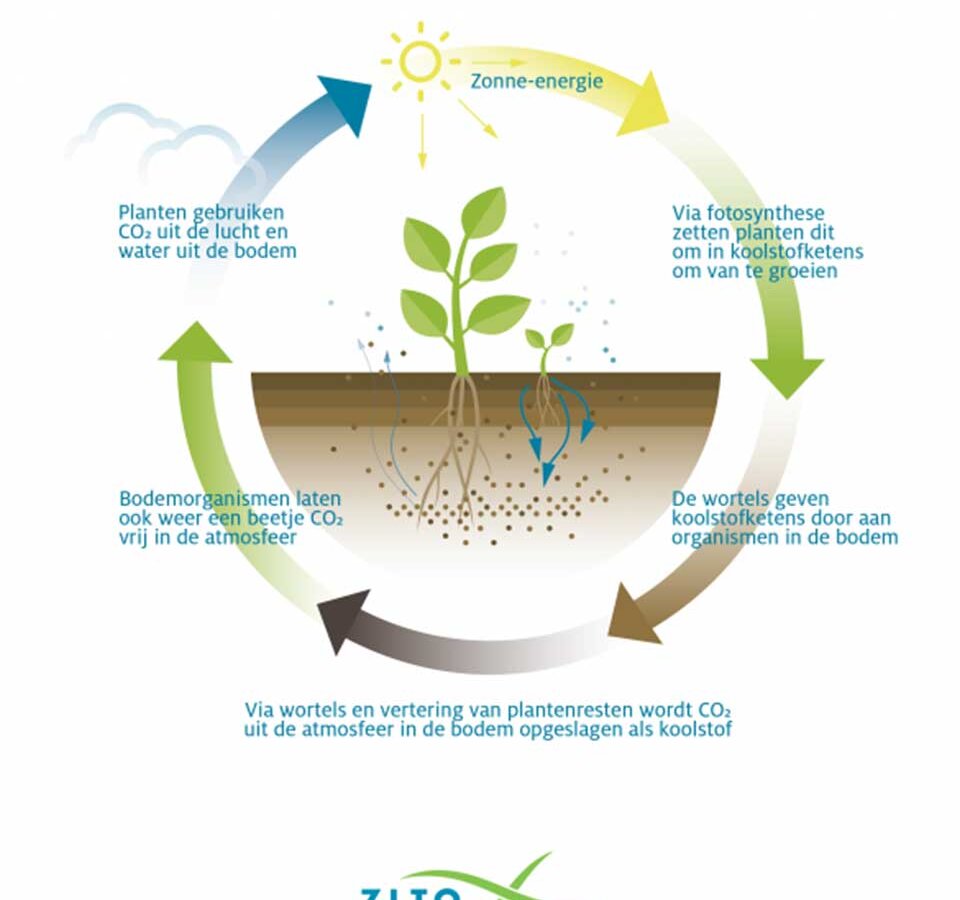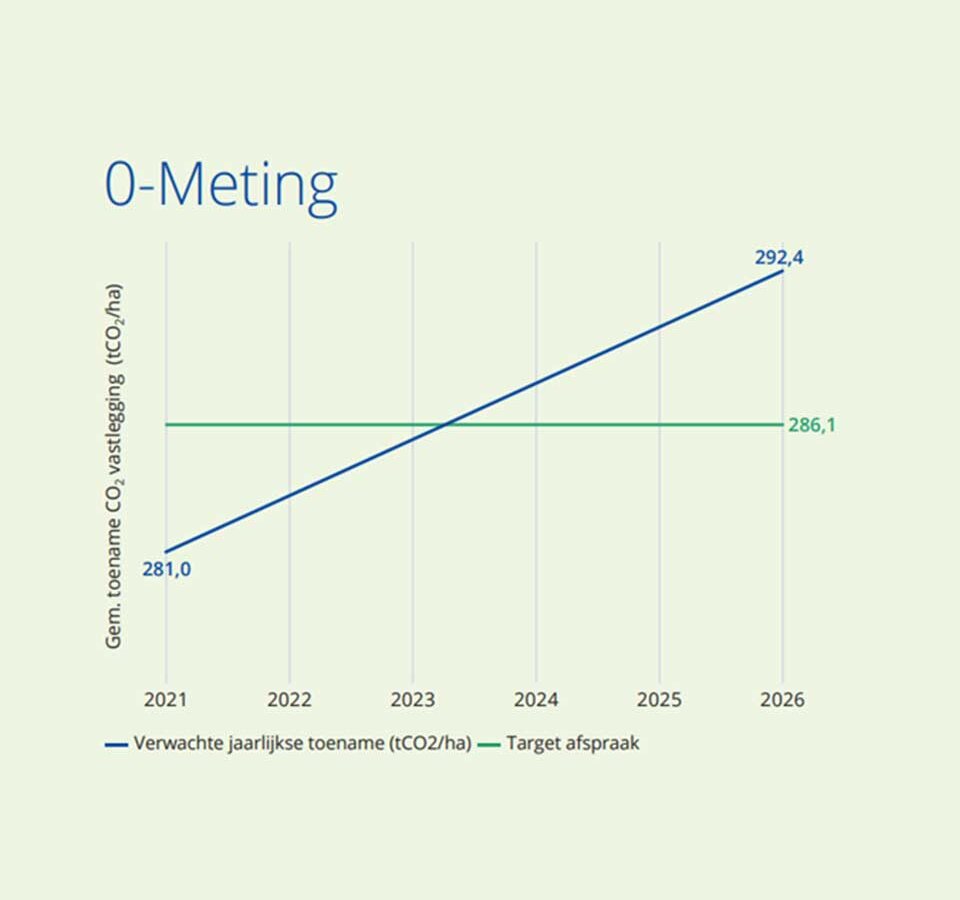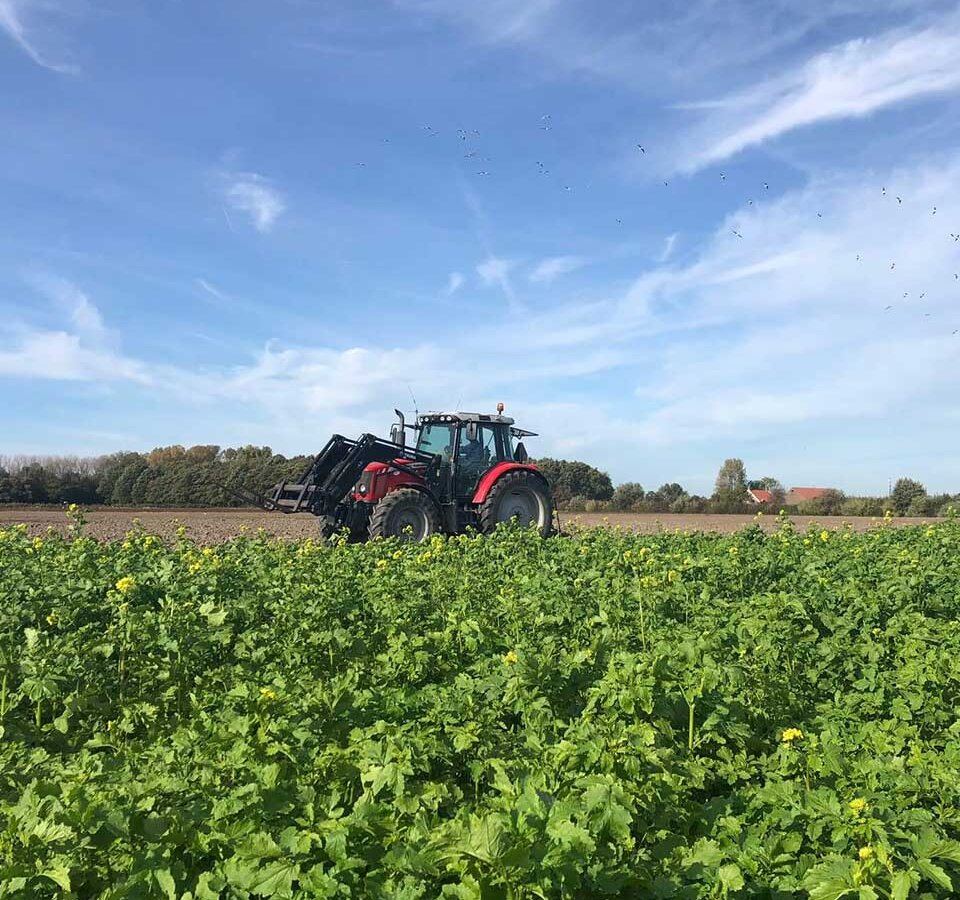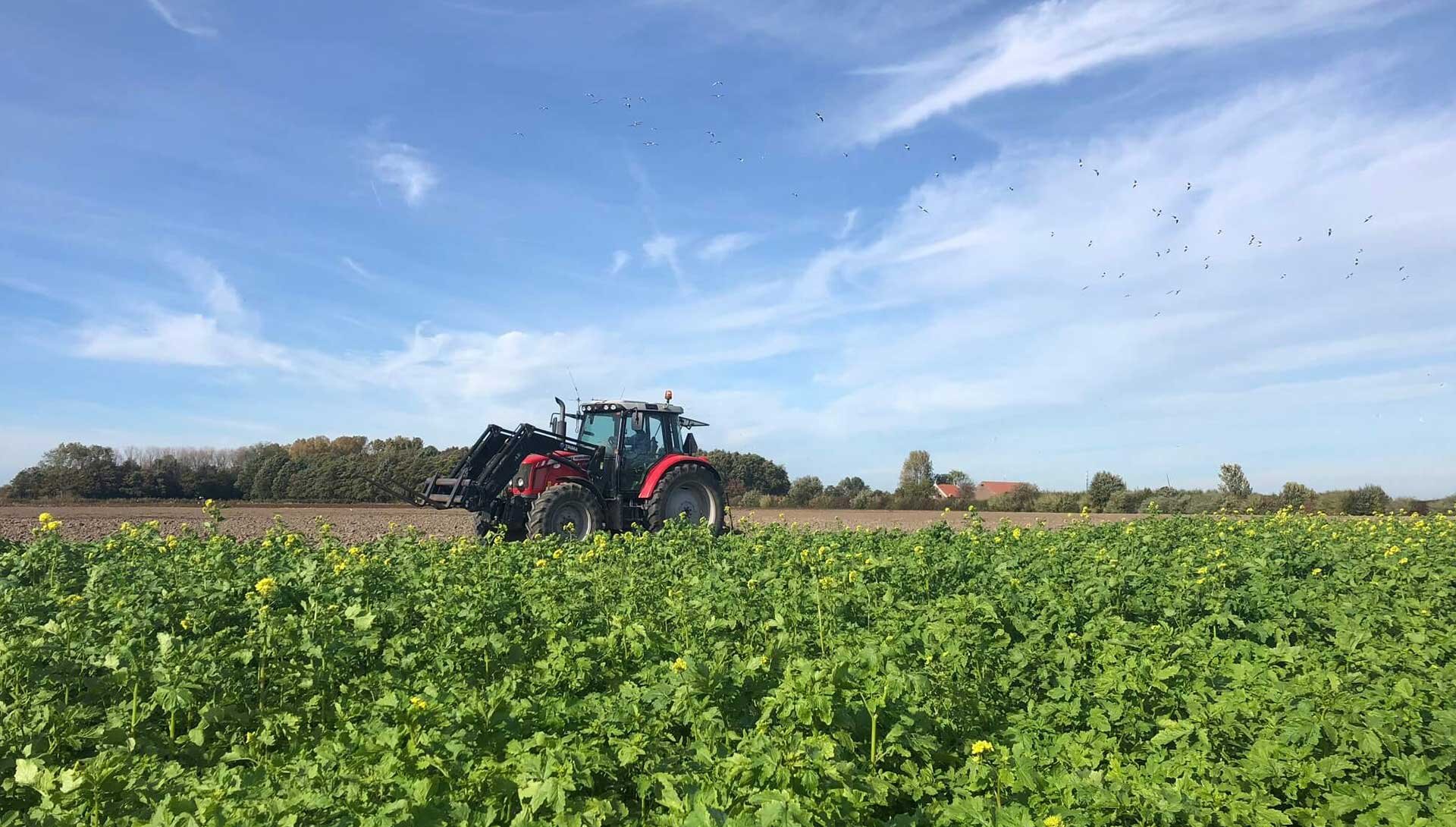Since 2017, DKG, the parent company of the kitchen brands Keller Kitchens, is the first in the industry to produce CO2 neutral. Time for the next step. DKG wants to become climate positive in the coming years and is doing so together with farmers’ organization ZLTO and carbon farmers in the region Johan Laurijsse and Joris de Jager.
Carbon farmers offer an innovative solution in which CO2 is removed from the air and stored in the soil as organic matter. The plants and crops on the farmer’s land convert CO2 into carbon chains via photosynthesis. The organic matter that is built up in this way also promotes soil fertility and the growth of crops. DKG embraces two carbon farmers within a radius of 15 kilometers around the factory in Bergen op Zoom. Over the past year, they have been working on binding CO2 in the soil.
CO2 from the air in the soil
Based on scientific research, a set of agricultural measures has been drawn up that allows a farmer to fix CO2 from the air in the soil for a long time. Plants and crops convert CO2 from the air into biomass. Various measures ensure that the carbon that is bound in this way is actually retained in the soil. The measures chosen are practicable and deliver the best possible return. Measures such as non-inversion tillage, green manures and catch crops or not tearing up grassland allow nature to do its job and increase soil life, so that more carbon binds in the soil. Field margins with deep-rooted plant species also bind carbon from the atmosphere in plants and soil. In addition to CO2 binding, there are additional benefits: biodiversity is increasing and agriculture is more resilient to climate extremes.

Working together with farmers from the region on a better climate
Over the next 4 years, carbon farmers Johan Laurijsse and Joris de Jager will work within a radius of 15 kilometers from DKG in Bergen op Zoom to improve the climate. They receive a financial compensation per measured ton of carbon captured and are guided by experts on their way to an optimal result. Every year, the farmers capture 30 tons of CO2 with the help of DKG’s contribution. This means that in 5 years no less than 150 tons of CO2 will be captured in the soil, which would normally remain in the air. By way of comparison: these are 390 one-way flights from Amsterdam to Rome.
ZLTO monitors progress using (soil) measurements and annual reports. The baseline measurement was established in the past year. Within 4 years we want to increase the average CO2 sequestration to 292.4 tCO2/ha. The process allows nature to do the work. The table shows the expected progress.
Hendrik Hoeksema (director ZLTO): “The farmer ensures a direct reduction of CO2 in the atmosphere by sequestering carbon in his soil. The whole world is looking for new ways to bind carbon, while forgetting the power of local agricultural soils. From ZLTO, we connect companies and farmers to capture carbon locally with visible results for the immediate environment.”
Bart Meeuwsen (commercial director B2B at DKG): “We are proud to enter into a partnership with farmers from our region and hope to set an example for other commercial organizations in our region and the rest of the Netherlands.”

About DKG’s sustainable ambitions
Kitchen manufacturer DKG has been involved in sustainable business for some time now.
Bart Meeuwsen: ”We take responsibility for the effects of our activities on people and the environment. We do this by not only looking at our product and waste flows, but at the entire chain. Together with partners, we take initiatives to a higher level. In 2017 we realized CO2 neutral kitchen production. We could only achieve this by ‘just’ starting with various initiatives.”
In recent years, DKG has built a sharp CSR policy, in which the Sustainable Development Goals form an important starting point. In addition, collaborations are central.
Bart Meeuwsen: “In addition to our CO2 neutral production, we also have to deal with unavoidable CO2 emissions that arise, for example, from transport and gas consumption in our stores. We offset all these emissions by participating in initiatives such as Trees for all and Climate Neutral Group. In addition, we aim to reduce the unavoidable CO2 emissions with a reduction policy. For example, we have switched to an electric lease vehicle fleet and we want to realize a switch from gas to gas-free in our stores. We may call ourselves CO2 neutral, but our goal goes further than that. We want to be the first kitchen supplier to become climate-positive and we are mapping out a route for this. When we learned about the possibility of a regional collaboration with carbon farmers, we were quickly convinced! It fits not only with our sustainable ambitions, but also with our traditional Dutch organization to enter into a partnership with farmers from the region and to put our shoulders to the wheel together.”
Local CO2 cycle
More and more companies see the need for climate-positive business operations. This can rarely be done completely in one go. Compensation for unavoidable CO2 emissions can be a transitional measure. Compensation is often sought far from home, such as tree planting in South America. Wouldn’t it be even better if companies had the option of organizing CO2 compensation locally? That is why DKG is participating in GO2Positive – Carbon Farming. With this project, DKG wants to demonstrate that the carbon cycle works locally with the help of farmers and the soil and with visible results for the immediate environment.
Hopefully many more companies will use the power of a local CO2 cycle in the future!

